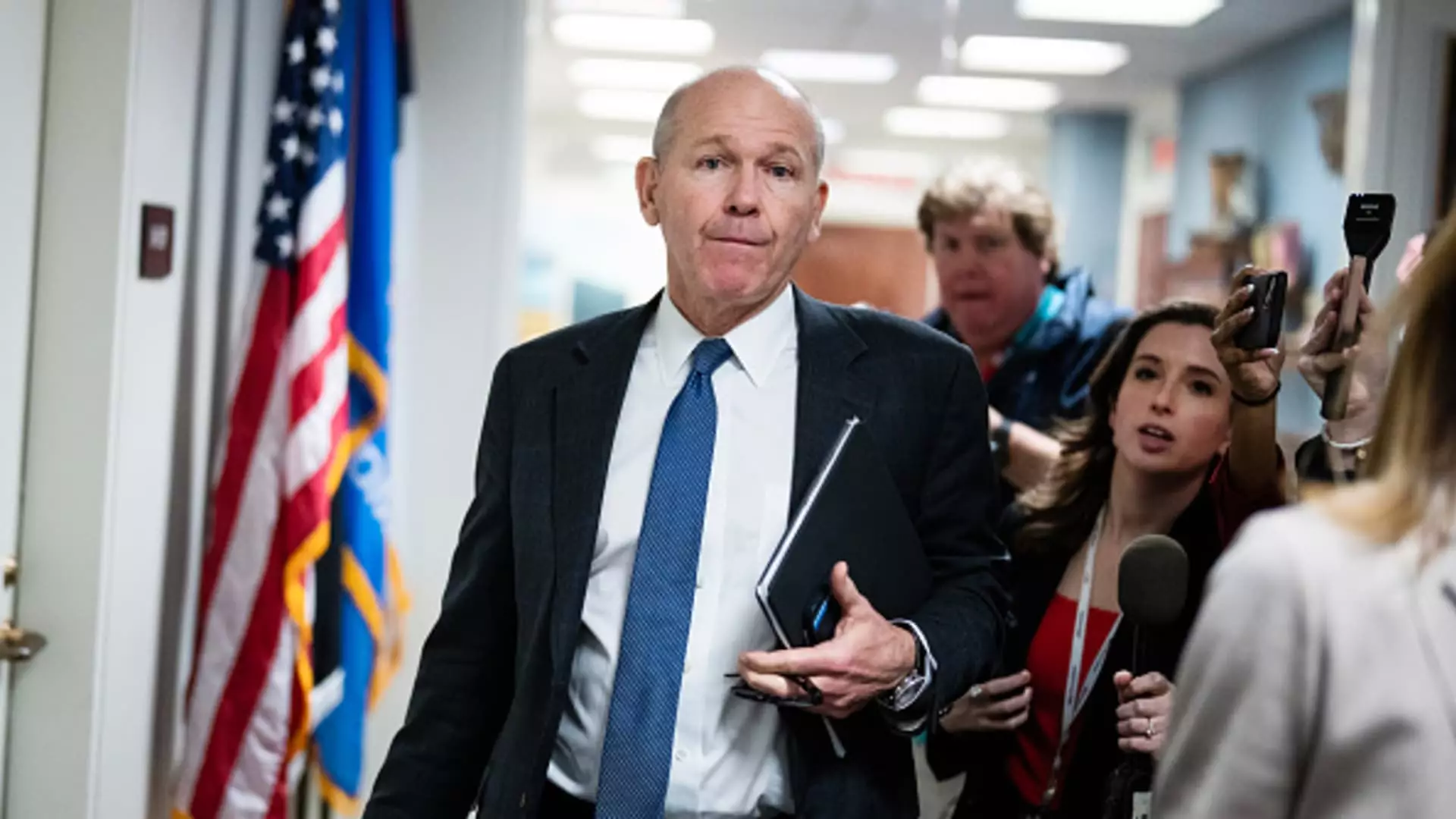Boeing CEO Dave Calhoun is set to address a Senate panel regarding the imperfections in the company’s culture, admitting that there is much room for improvement. The acknowledgment comes as fresh whistleblower claims have emerged just before the hearing, alleging mishandling of defective parts within the company. Calhoun, who has announced his intention to step down by the end of the year, faces probing questions from the Senate Permanent Subcommittee on Investigations. This scrutiny comes as Boeing strives to enhance employee training, ensure aircraft quality, and restore its tarnished safety reputation.
The whistleblower claims, brought forward by quality assurance investigator Sam Mohawk, shed light on alleged lapses in Boeing’s handling of damaged or substandard parts. Mohawk contends that these compromised parts are likely finding their way onto airplanes due to discrepancies in the tracking process. Specifically, the parts in question were flagged at Boeing’s Renton, Washington, facility, where the popular 737 Max aircraft is manufactured. Mohawk also reported being subjected to retaliation and instructed by supervisors to conceal evidence from the Federal Aviation Administration. The troubling revelations have raised concerns about the overall safety and integrity of Boeing’s aircraft components.
Response and Investigations
Boeing has responded to the whistleblower claims, indicating that the company is currently reviewing the allegations. A company spokesperson emphasized the importance of employees reporting all concerns to uphold the safety of the airplanes and the traveling public. Meanwhile, the FAA has acknowledged an uptick in reports from Boeing staff following a recent incident involving a door-plug blowout. The agency commits to thoroughly investigating all claims, including those unearthed by the Senate subcommittee’s inquiry. However, the FAA refrained from commenting on the specific details of the latest allegations.
Legal and Regulatory Ramifications
The unfolding whistleblower claims and the Senate hearing add further complexity to Boeing’s legal and regulatory challenges. The company is already facing potential prosecution by the U.S. Justice Department for violating a 2021 settlement related to the 737 Max crashes that resulted in 346 fatalities. The agreement, aimed at shielding the company and its executives from criminal charges tied to the accidents, is under review by the Justice Department. Additionally, family members of the crash victims are expected to participate in the Senate hearing, seeking accountability for the safety lapses that led to the tragic incidents. Senator Richard Blumenthal has called for a thorough explanation from Boeing regarding its safety practices and corporate culture.
The ongoing scrutiny and regulatory restrictions have had a significant impact on Boeing’s operations and financial performance. The FAA has imposed stringent measures on the company, including keeping inspectors on-site until safety improvements are verified. Production limitations on the 737 Max have disrupted Boeing’s output and deliveries, prompting adjustments by major customers like Southwest Airlines and United Airlines. The production constraints have exacerbated the financial strain on Boeing, leading to a projection of cash burn instead of generation for the current year. As a result, Boeing’s stock value has seen a notable decline, reflecting investor concerns over the company’s ability to navigate its current challenges.
Boeing has outlined various initiatives to address quality concerns and enhance transparency within its manufacturing processes. The company has implemented measures to encourage employees to report problems and prevent retaliation against whistleblowers. In response to supply chain issues, Boeing is actively addressing discrepancies and ensuring compliance with quality standards. Despite facing obstacles related to its operations, Boeing remains committed to remedying deficiencies and upholding safety standards across its aircraft fleet. Additionally, the pending acquisition of fuselage supplier Spirit AeroSystems signifies Boeing’s strategic efforts to streamline its supply chain and strengthen its production capabilities.


Leave a Reply